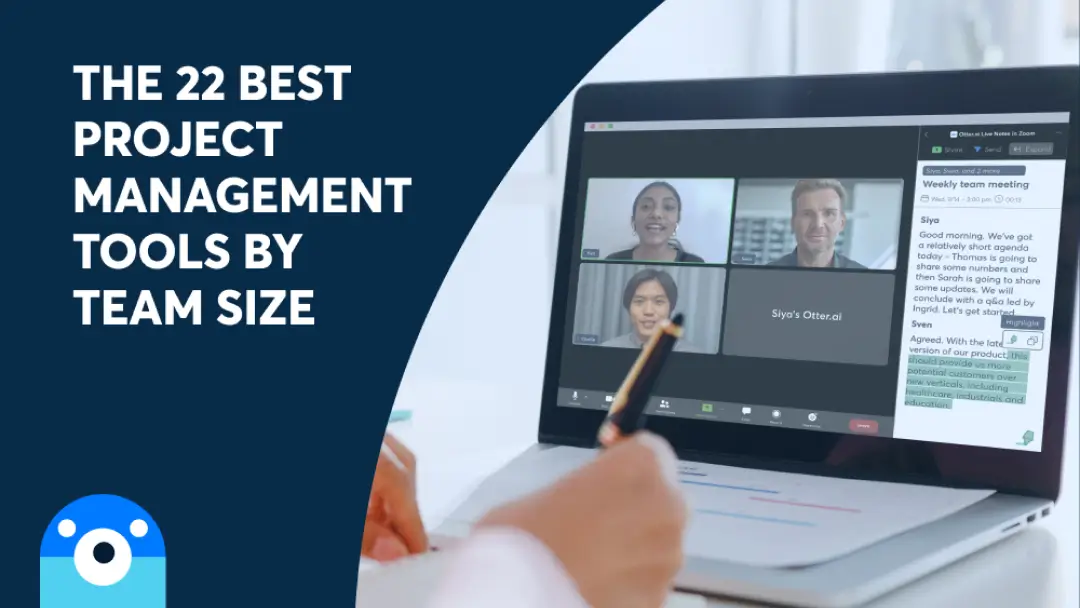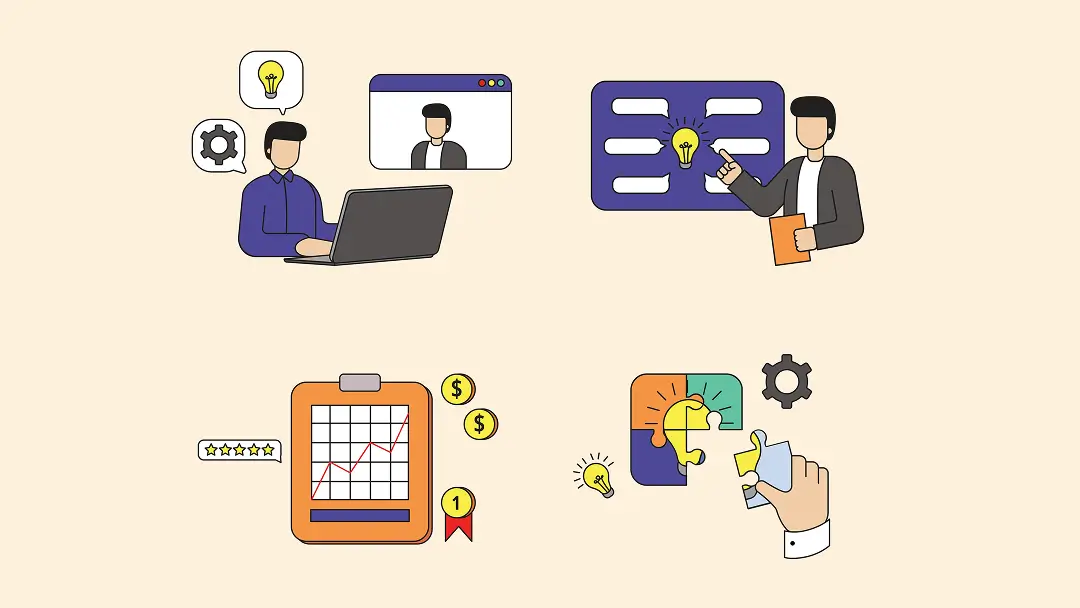14 Essential Project Management Skills for Success

Imagine trying to build a house without a blueprint, a team, or the tools to lay the foundation. Now, add a stopwatch and a tight budget.
Seem impossible? That’s what it’s like to manage projects without the right set of skills.
Project managers are the guides of all successful endeavors, balancing technical know-how with polished soft skills to inspire teams, navigate challenges, and deliver positive outcomes. Doing this job well requires a ton of background knowledge — but the good news is that with the right research and planning, you can learn everything you need to know.
This guide explores essential project management skills and how to build them, brick by brick. From hard and soft skills to technical expertise, here’s what to add to your professional toolbox with practical tips and project management skill examples to get started.
What are project management skills?
A project manager is the driving force behind any team. These professionals are in charge of prioritizing tasks, allocating resources, and tracking goals, just to name a few responsibilities.
While “project manager” is a common position, many fields and careers involve project management skills, which empower all kinds of leaders to guide tasks from concept to completion.
Successful managers need to develop a mixed bag of skills that combines technical expertise, interpersonal strengths, and strategic planning to keep projects on track. Without this background, projects tend to go off the rails, producing communication silos and wasted resources — not to mention missed deadlines. Continuously building skills gives both managers and teams the resilience to adapt and make strategic decisions throughout the entire project lifecycle.
4 technical skills for project managers
Leveraging diverse tools and methodologies drives successful outcomes, no matter how complex the project. Here are the technical skills you need to know:
1. Project management methodologies
Every project presents unique opportunities and challenges. That means there’s no one-size-fits-all methodology. Successful leaders study a variety of project management strategies — like Scrum, Lean, and Agile — and apply the most suitable framework to each scenario.
2. Project management software
Coordinating tasks, timelines, and team members requires more than a dog-eared notebook. Successful project managers take advantage of software, like Trello, Asana, and ClickUp. These platforms keep project planning organized and on track, providing a centralized way to collaborate and monitor progress.
3. Budgeting
Budgets make or break a successful project. Successful professionals take a data-driven approach to budgeting, using research and historical data to accurately forecast costs and track expenses. By mapping out finances to the last cent, they make informed adjustments that keep projects within budget and on schedule.
4. AI skills
AI transforms the way we work, offering new ways to support project planning and problem-solving. AI technologies can automate routine tasks, analyze risk management, and predict potential bottlenecks.
6 soft skills for project managers
Soft skills are personal attributes that determine how we communicate and confront challenges. While they’re often rooted in personality, project managers can hone their abilities through experience and trial and error. Here are some good examples:
5. Communication
Clear, effective communication skills are the glue that connects team members and stakeholders to progress and goals. Project managers should know how to convey information concisely and listen actively to address concerns.
6. Organization
For project managers, to-do lists and project-tracking software aren’t simple tools. They’re a way of life. To juggle multiple tasks and responsibilities at once, managers need effective organization. It lets them prioritize, delegate, and move everything forward without losing sight of deadlines and critical details.
7. Time management
Stakeholder meetings, deadlines, and team member queries all compete for a project manager’s attention. Effective time management lets them prioritize tasks and make sure key activities wrap up when they need to — without sacrificing quality.
Learning time management techniques like time blocking, the Eisenhower Matrix, or the Pareto Principle can help managers focus on high-impact tasks that yield strong results.
8. Adaptability
Projects rarely go exactly to plan. Adaptable project managers can pivot quickly when unexpected challenges come up, whether it’s a shift in scope, resource availability, or team dynamics. The ability to adjust and keep calm under pressure is the bridge to maintaining momentum.
9. Problem-solving
When you start a new project, there aren’t many guarantees — except for obstacles that interrupt the path to success. Project managers have to approach challenging tasks with a mix of systematic focus and creativity. Techniques like mind mapping, design thinking, and decision matrices can all help evaluate and prioritize multiple options.
10. Leadership skills
Team members and stakeholders look to project managers to guide everyone toward shared goals. Strong leaders foster collaboration, delegate effectively, and motivate teams even during tough project phases.
Leadership skills pull in several soft skills, using strong communication, organization, and problem-solving to maintain team morale throughout the project.
4 hard skills for project managers
Hard skills are specific, measurable abilities that project managers use to perform key tasks. Here are a few to know:
11. Project planning
Project planning involves creating detailed, actionable plans that outline the scope, resources, timeline, and goals for a project. A solid plan makes sure all team members know their roles and responsibilities, plus any deliverables and deadlines relevant to them.
12. Project kickoff meetings
Kickoff meetings lay the foundation for project success by aligning all stakeholders and team members on objectives and expectations. To run a successful meeting, project managers have to clearly outline project goals, establish deadlines, and assign responsibilities. They should also lay out potential risks, setting the stage for proactive critical thinking and resilience.
Tools like Otter can capture and organize key details from these kickoffs, keeping everyone on the same page with clear, accessible documentation. This makes it easy to refer back to essential details later on.
13. Task management
Task management is the ability to break down big projects into manageable tasks and delegate responsibilities accordingly. Teams can use project management software, manual task management methods (like Gantt charts), and Sprint meetings to complete deliverables on time and within scope.
14. Risk management
Compliance issues and scope creep are just a few risks that can push a project off course. Effective project managers proactively analyze potential roadblocks, measure their impact, and create strategies to mitigate or avoid them. For highly probable risks, managers should know how to establish a contingency plan.
How to build project management skills: 4 tips
Building up your project management skills is a continuous learning process that takes time. Here are a few ways to enhance your abilities and grow in your role:
- Get project management certifications: Continued education is a great way to build foundational knowledge and stay up to speed with industry standards. Consider a Project Management Professional (PMP) certification with a recognized school like the Project Management Institute (PMI). Enrolling in one-off seminars, workshops, and training sessions can also sharpen your skills without eating up too much of your time.
- Practice: Whether you're new to negotiations or project scheduling, the more you practice, the more you learn. Manage projects as often as possible. Give yourself the grace to make mistakes and ask for help from leadership along the way.
- Find the right tools: With so many project management tools available, it’s essential to choose software that aligns with your workflow and needs. The right tools can automate repetitive tasks, track progress, and enhance collaboration, making your job — and life — easier. For example, Otter’s AI-powered transcription can help you quickly capture meeting details and draft follow-up communication after every conversation.
- Reflect: All projects, whether successful or not, offer valuable insights. Take time to reflect on your approach, analyze what worked, and identify areas for improvement. Journaling and seeking feedback from team members can feel challenging, but it takes you one step closer to being the best you can be.
Project management just got easier with Otter
Mastering any skill takes a village and everything it’s equipped with — including the right resources, team members, and tools.
Overwhelmed? Use Otter. With Otter’s AI meeting assistant, you can keep your meeting notes organized, collaborate on transcripts, and ensure no detail slips through the cracks.
If you’re ready to elevate your project management game, let Otter help you streamline your workflow and tackle projects with confidence.

















.avif)


